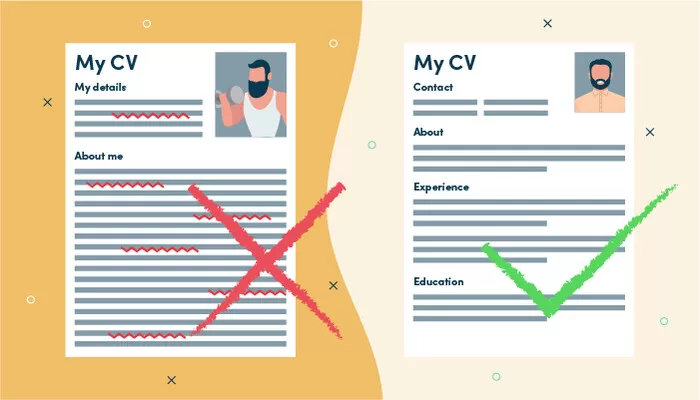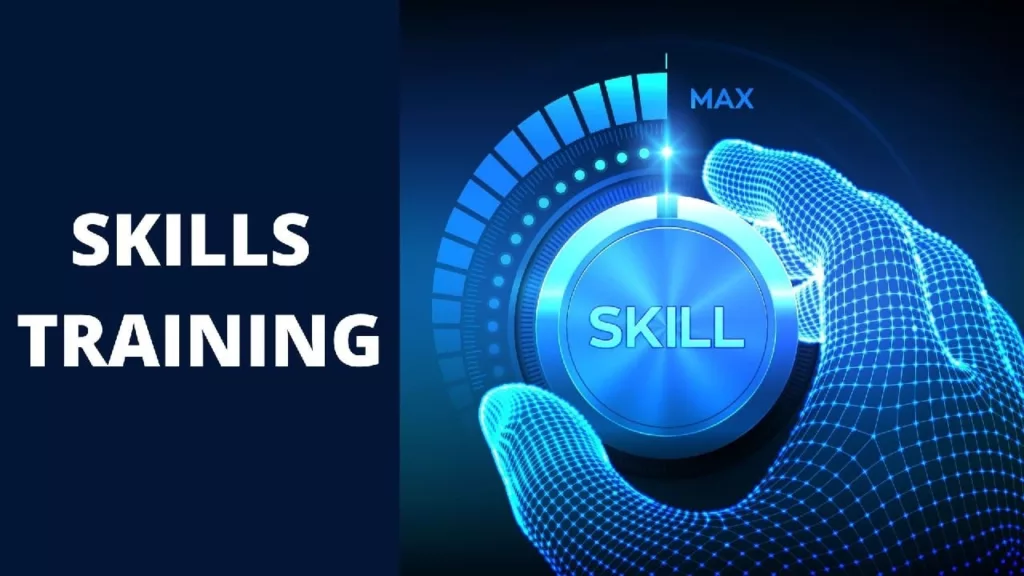
New clients, unlock 10% off all plans 🔥 at checkout with code: CEO10SPECIAL (Limited Time Offer)
New clients, unlock 10% off all plans 🔥 at checkout with code: CEO10SPECIAL (Limited Time Offer)






Crafting a well-tailored resume is a critical step in advancing your career.
As you progress from an entry-level position to the executive level, your resume needs to evolve to showcase your growing skills, experience, and leadership abilities effectively.
In this article, we will guide you through the process of tailoring your resume to your career level, ensuring that it aligns with the expectations of hiring managers and stands out among other applicants.
Whether you’re just starting your professional journey, aiming for mid-level positions, or aspiring to executive roles, we’ve got you covered.
We will explore the key sections and strategies for each career level, providing valuable insights on how to make your resume shine.
From highlighting your education and internships in the entry-level resume to emphasizing accomplishments and executive leadership skills in the executive-level resume, we will help you craft a compelling document that demonstrates your suitability for the role.
So, let’s dive in and learn how to optimize your resume at each stage of your career, opening doors to new opportunities and paving the way for your professional success.
Find out: The Future of Resumes: Trends and Innovations to Look Out For

When it comes to tailoring your resume, it’s vital to understand the nuances of different career levels.
Whether you’re starting out in an entry-level position, advancing to a mid-level role, or aspiring to reach executive status, your resume needs to reflect the expectations of your target career level.
At the entry-level, focus on showcasing your education, internships, and relevant coursework. Highlight transferable skills gained from part-time jobs or volunteer work.
For instance, if you’re applying for an entry-level marketing position, emphasize your coursework in marketing principles and your experience managing social media for a local nonprofit.
As you progress to the mid-level, your resume should emphasize professional experience and accomplishments. Highlight leadership roles, project management experience, and specialized skills relevant to your industry.
For example, if you’re seeking a mid-level project management role, emphasize your successful completion of complex projects and your ability to lead cross-functional teams.
At the executive level, your resume should demonstrate strategic thinking, vision, and executive leadership skills.
Highlight achievements, quantifiable results, and your impact on the organization.
Showcase board memberships, thought leadership articles, and industry recognition. For instance, if you’re applying for a C-level executive position, highlight your experience leading organizational transformations and driving substantial revenue growth.
Understanding the expectations and qualifications at each career level will help you tailor your resume effectively and stand out as a strong candidate.
Furthermore, you must ensure to align your experiences, skills, and accomplishments with the specific requirements of your target role and industry.
Find out: 7 Signs Your Resume is Making You Look Old
When crafting an entry-level resume, strong focus must be on highlighting your education, internships, and relevant coursework. These elements will showcase your knowledge and potential, compensating for limited professional experience.
Start by creating a strong objective statement that highlights your career goals and enthusiasm for the industry.
Additionally, emphasize transferable skills gained from part-time jobs, volunteer work, or extracurricular activities. For instance, if you were a team member in a school project, highlight your collaboration and problem-solving skills.
If you volunteered for a local charity, emphasize your organization and communication abilities.
Don’t forget to include any certifications or specialized training you have obtained. These demonstrate your commitment to learning and your readiness to contribute.
Consider this summary example:
“Dedicated recent graduate with a Bachelor’s degree in Marketing seeking an entry-level position in digital marketing. Excited to apply my strong analytical skills, acquired through coursework and internships, to drive online engagement and conversion. Proficient in social media management tools and Google Analytics, with a passion for creating compelling content strategies.”
Note that at the entry-level, employers are looking for potential and enthusiasm, so tailor your resume to showcase your relevant skills and accomplishments, even if they aren’t directly related to the industry.
Congratulations! You’ve gained some valuable experience and are now ready to take your career to the next level.
As a mid-level professional, your resume should reflect your growth, accomplishments, and ability to handle more complex responsibilities.
Here’s how to elevate your mid-level resume to stand out from the competition.
Highlight your career progression, showcasing positions held, and responsibilities undertaken.
Focus on quantifiable achievements and results, such as exceeding targets, improving processes, or leading successful projects.
For example, instead of simply stating “Managed a team,” highlight your leadership skills by mentioning how you successfully guided a team of five members, resulting in a 30% increase in productivity.
As a mid-level professional, you’ve likely developed specialized skills in your field. Highlight these skills prominently in your resume to demonstrate your expertise.
For instance, if you’re in marketing, mention your proficiency in data analytics, social media management, or campaign optimization. Provide specific examples of how these skills have positively impacted previous projects or campaigns.
Research industry-specific resume expectations and tailor your resume accordingly.
Use relevant terminology, keywords, and industry buzzwords to showcase your familiarity with current trends and practices. This will demonstrate that you’re up-to-date and ready to tackle challenges in your field.
It’s important to note that at this stage, your resume should portray you as a capable professional who can take on more responsibility and contribute to the success of the organization.
Through strategic emphasis on your experience, specialized skills, and industry alignment, you’ll position yourself as a strong candidate for mid-level positions.
When it comes to crafting an executive-level resume, strategic thinking, vision, and executive leadership skills should take center stage.
As an executive, you’re expected to showcase your ability to drive organizational growth, make high-level decisions, and inspire teams.
Here’s how to strategically tailor your resume to highlight your executive prowess:
Executive-level resumes should focus on tangible accomplishments that demonstrate your ability to deliver results.
Quantify your achievements whenever possible. For example, instead of stating “Led a team,” say “Led a cross-functional team of 20, resulting in a 30% increase in revenue within 12 months.”
Showcase your strategic thinking and vision by highlighting projects where you formulated and executed long-term strategies.
Describe how your initiatives contributed to business growth, market expansion, or improved efficiency.
For instance, “Developed and implemented a comprehensive market penetration strategy that resulted in a 40% increase in market share.”
If you serve on boards or have contributed to industry publications, include these accomplishments. They demonstrate your influence and expertise within your field.
For example, “Actively serve as a board member for XYZ Association, contributing to strategic decision-making and industry advocacy.”
Executive roles require a unique skill set. Highlight skills such as strategic planning, financial management, stakeholder engagement, and change management.
For instance, “Demonstrated expertise in leading complex mergers and acquisitions, successfully integrating three companies and achieving $50 million in cost savings.”
Bear in mind that your executive-level resume should be concise, impactful, and showcase your ability to drive organizational success.
Tailor your achievements and skills to align with the specific requirements of the executive role you’re targeting, and ensure that your resume reflects the gravitas and strategic mindset expected at this career level.
Find out: The Importance of Personal Branding on Your Resume and LinkedIn Profile

One of the key aspects of tailoring your resume to your career level is effectively showcasing your skills and qualifications.
Highlighting the right skills and qualifications can make a significant impact on how hiring managers perceive your candidacy.
Let’s explore some strategies for each career level:
As an entry-level candidate, focus on transferable skills gained through education, internships, and extracurricular activities.
Highlight abilities such as communication, teamwork, problem-solving, and time management.
For example, if you completed a group project during your studies, mention your collaboration skills and the successful outcome of the project.
At this stage, emphasize your professional experience and accomplishments.
Showcase leadership skills, project management expertise, and industry-specific knowledge.
For instance, if you successfully led a team or completed a project within budget and ahead of schedule, highlight these achievements. Also, mention any specialized training or certifications relevant to your field.
Executive-level resumes should reflect strategic thinking, vision, and executive leadership skills.
Showcase accomplishments that demonstrate your ability to drive results, impact the organization’s growth, and make informed decisions.
Highlight your experience in leading teams, implementing strategic initiatives, and driving revenue growth. For example, mention how you achieved significant cost savings through process optimization or how you successfully executed a company-wide change management initiative.
Regardless of your career level, it is important to incorporate both hard and soft skills.
Hard skills are specific technical or job-related abilities, such as programming languages or data analysis.
Soft skills, on the other hand, are personal attributes like leadership, communication, and problem-solving.
Carefully review the job description and industry trends to identify the most sought-after skills and qualifications.
Tailor your resume to showcase those skills prominently and provide specific examples of how you have utilized them in your professional journey.
Effective showcasing of your skills and qualifications can demonstrate your suitability for the desired career level and increase your chances of landing the job you desire.
When it comes to crafting a winning resume, the format and design play a key role in capturing the attention of hiring managers.
The way your resume is presented can significantly impact how well it communicates your skills and qualifications.
Let’s explore some key considerations for tailoring the format and design of your resume based on your career level.
Regardless of your career level, a clean and professional resume layout is essential. Avoid cluttered designs and opt for a simple, well-organized structure that is easy to read.
Use consistent fonts and appropriate spacing to enhance readability.
Example: For an entry-level resume, you can choose a modern and visually appealing template that showcases your creativity and attention to detail. Consider incorporating a professional summary at the top to provide a snapshot of your qualifications.
The choice of format depends on your career level and the industry norms.
For entry-level positions, a chronological resume format can work well, as it highlights your education and any relevant internships or volunteer experiences.
For mid-level and executive roles, a combination or functional resume format may be more suitable, emphasizing your achievements and skills.
Example: A mid-level professional can use a combination format to highlight their progressive work experience, while also showcasing their key skills and accomplishments. This format allows them to demonstrate their expertise and potential for higher-level positions.
Organize your resume content using a clear visual hierarchy to guide the reader’s attention.
Use headings, subheadings, and bullet points to create a structured layout that highlights the most important information.
Example: Bold section headings, such as “Professional Experience” or “Skills,” draw attention and make it easy for the hiring manager to navigate through your resume. Within each section, use bullet points to concisely present your achievements.
Tailor your resume design to align with your industry and career level.
Creative professionals may opt for a more visually appealing design, while executives might choose a more formal and minimalist layout.
Example: An executive-level resume can incorporate a subtle color palette and strategic use of white space to convey a sense of professionalism and authority. Including a professional headshot can also add a personal touch.
Generally, the format and design of your resume should complement and enhance the content, not overshadow it.
Keep it professional, easy to read, and visually appealing. Through tailoring your resume’s format and design to your career level, you can create a lasting impression and increase your chances of standing out among the competition.
In current resume age, it’s not just humans who review your resume; applicant tracking systems (ATS) have become an integral part of the hiring process.
These systems scan and filter resumes based on specific keywords and criteria set by employers. To increase your chances of getting noticed by both ATS and hiring managers, it’s important to optimize your resume with relevant keywords.
Here’s how you can do it effectively:
Research Industry-Specific Keywords: Start by researching industry-specific keywords related to your target job. Look for commonly used terms, technical skills, certifications, and industry buzzwords. For example, if you’re in marketing, relevant keywords might include “digital marketing,” “SEO,” or “content strategy.”
Incorporate Keywords in Job Titles and Skills Section: Ensure that your job titles, especially in the work experience section, align with industry norms and use relevant keywords. Additionally, create a dedicated skills section and include a mix of hard and soft skills related to your desired position. For instance, if you’re a software engineer, include keywords like “Java programming,” “database management,” or “agile methodologies.”
Use Keywords in Accomplishments and Responsibilities: When describing your past roles and responsibilities, incorporate keywords naturally throughout your bullet points. Focus on highlighting your accomplishments and use specific metrics or numbers whenever possible. For example, instead of stating “managed social media accounts,” say “increased social media engagement by 40% through targeted content strategy.”
Customize for Each Job Application: Tailor your resume to each job application by analyzing the job description and incorporating relevant keywords accordingly. This customization demonstrates your alignment with the specific role and increases your chances of getting past the ATS screening process.
And yes, while optimizing your resume for keywords is essential, it’s equally important to maintain a readable and coherent resume.
Use keywords strategically, without overstuffing or sacrificing the overall quality of your content.
Tailoring your resume to your career level is vital for maximizing your chances of landing your desired roles and advancing in your professional journey.
Whether you’re starting out at the entry level, progressing through mid-level positions, or aiming for executive-level positions, understanding the expectations and requirements of each stage is key.
Through customizing your resume to highlight the relevant skills, qualifications, and experiences for your target career level, you can effectively showcase your suitability for the role and stand out from other candidates.
Ensure to keep your resume format clean and professional, optimize it with relevant keywords, and continuously update it as your career evolves.
For professional resume writing assistance, consider CEOMichaelHR Professional Resume Writing Service. Our team of experts can help you craft a tailored resume that effectively represents your career level and maximizes your chances of success. Take the next step towards your career goals by investing in a professionally written resume today!
Share
Further Reading
*The names and logos of the companies referred to in this page are all trademarks of their respective holders. Unless specifically stated otherwise, such references are not intended to imply any affiliation or association with CEOMichaelHR.
Land interviews 3x faster while submitting fewer resumes
Copyright © 2023, ceomichaelhr.com.
All rights reserved.
Land interviews 3x faster while submitting fewer resumes
Copyright © 2023, ceomichaelhr.com.
All rights reserved.

Learn the same techniques our expert resume writers have used to get thousands of clients closer to their next job
Unlock expert resume tips, start landing multiple interviews!

Stay connected to receive powerful career insights, updates, and inspiration that’ll help you hit your 2023 career goals.